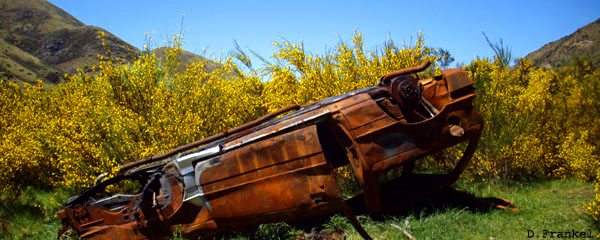
photo by David Frankel
by Kath Mckay
Tim Winton is an author who gets down in the dust of humanity. He writes about car crashes and disfigurements and scrubbing floors and drownings and hangings and falling out with your in-laws, and drinking too much and hitching up with unsuitable people. He’s also about the aching beauty of the sea and the land that swells people’s souls.
In an interview with Richard Rossiter, Winton said:
“I’m trying to render the commonplace worthy of attention […] I write about working class people, who generally aren’t articulate, and are often alienated and powerless. All my books are about people trying to make sense of things, about a search for meaning.”
Winton, born in 1960, studied Creative Writing at what is now Curtin University, and was mentored by Elizabeth Jolley. He published his first novel, An Open Swimmer, at the age of 22, and became internationally known with Dirt Music and Cloudstreet. He has been nominated for the Man Booker Prize, twice.
In a 2008 Guardian interview, he said Australian generations before him ‘kowtowed’ to the dominant European culture. Permission to break away came from the ‘regional’ writing of America:
…writers who are in their own place and challenge it from the specific – that felt so universal to me, reading Mark Twain, reading Faulkner, reading Flannery O’Connor. I didn’t always know what was going on, but the strangeness of the music, the peculiarity of it, just swept me along. And that means you don’t have to be as performative and showy as someone from an older tradition has to be – people having to manufacture freshness and interest by feats of novelty and bombast and linguistic daring, where style is essentially the story.
He is a deceptively simple writer, often using the Australian vernacular to comic effect. He numbers Flannery O’Connor as an inspiration; she too spoke of the necessity of violence to shock her characters into awareness. And from Mark Twain, he took note that ‘you can write the way you speak. You don’t have to import a literary diction from Europe.’
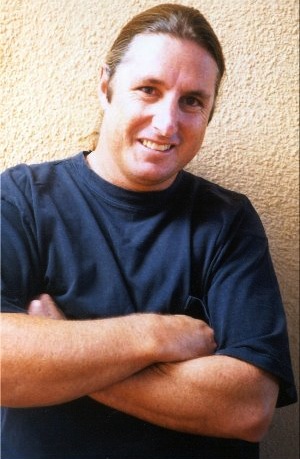 The Turning is Winton’s 2005 short story collection, which consists of seventeen stories, centred around a fictional town called Angelus, a crayfishing village called White Point, and outer suburbs. Characters recur, and we view the same event from different perspectives; many of the stories concern Vic and his family, others a character called Max and his wife, Raelene. This layering effect builds, as you revisit incidents, getting a kaleidoscope view of communities shaped by violence and corruption. And as a reader, you actively try to lock the jigsaw pieces together.
The Turning is Winton’s 2005 short story collection, which consists of seventeen stories, centred around a fictional town called Angelus, a crayfishing village called White Point, and outer suburbs. Characters recur, and we view the same event from different perspectives; many of the stories concern Vic and his family, others a character called Max and his wife, Raelene. This layering effect builds, as you revisit incidents, getting a kaleidoscope view of communities shaped by violence and corruption. And as a reader, you actively try to lock the jigsaw pieces together.
‘Big World’ is about a pair of no-hopers, the narrator and his side-kick Biggie. The narrator, looking back many years later, recounts how when he moved to the local high school, he was persecuted by a bully called Tony Macoli: ‘very short with a rodent’s big eyes and narrow teeth’. One day Biggie floors Macoli, who is ‘suddenly landscape’.
For five years the narrator completes Biggie’s school work, and fails his own exams. They graduate to the meat factory, eventually escaping north in a VW Kombi, a ‘garden shed on wheels’. Biggie meets Meg, ‘thick as a box of hammers’, and enjoys being smarter as they quiz each other on theme tunes to TV sitcoms.
When the van catches fire, the trio bail out:
We turn our attention to the sunset. Meg rolls another spliff and we share it standing there taking in the vast, shimmering pink lake that suddenly looks full of rippling water. We don’t say anything. The sun flattens itself against the saltpan and disappears. The sky goes all acid blue and there’s just this huge silence. It’s like the world’s stopped.
Outside the frame of the story, the narrator tells us of the almost inevitable future, but returns to that moment of stillness:
Right now, standing with Biggie on the salt lake at sunset, each of us still in our southern-boy uniform of boots, jeans and flannel shirt, I don’t care what happens beyond this moment. In the hot northern dusk, the world suddenly gets big around us, so big we just give in and watch.
In the title story, ‘The Turning’, Raelene lives in a mobile home with her violent and unreliable husband Max, and her daughters. Raelene loves Max, but his abuse makes her embarrassed and ashamed. Sherry and her husband Dan, new to the caravan park, and picture-perfect good-looking, befriend Raelene. Sherry tells Bible stories to Raelene’s kids, and eventually Raelene twigs they are Christians. Dan is a recovering alcoholic, and his posting as the cray factory manager is a second chance. Raelene, sceptical but fascinated, drops by regularly, telling Max she is playing darts. She asks Sherry about the ‘born-again business’:
‘What’s it like? […] You know, the change. When you turned or whatever you call it.’
‘Like a hot knife going through me,’ answers Sherry.
Raelene buys a snow dome of Christ walking on water – ‘all man’ with ‘real pecs’ and ‘rock-star hair’, the snow a descending cloud of tiny white doves. She thinks of ‘him in his little dome and her in her little aluminium box, both of them trapped’. When Max realises she has been lying to him, he suspects she’s cheating and beats her badly. Raelene returns from hospital with a shaved head, looking like Joan of Arc. In the night, Max enters her. Raelene, who has never believed, undergoes an epiphany at this moment of extreme violence: ‘Everything was new. In her dome it snowed birds, as the van rocked, birds like stars […] She was free. She had already outlived him.’
Winton says of the story:
I guess it’s the unlikeliness that interested me so much, the hook of parable and story that catches her initially, the effort she sees her new friends making to put their lives back together, but finally the power of the image, the icon that inspires something in her, which she draws on to defy her rotten, battering husband. She feels enlarged, empowered by faith […] when I finished, I was a bit afraid of it, to be honest […] The violence of it, the fact that I was writing from the woman’s point of view, the anticipation of simultaneously being labelled blasphemous and politically incorrect […] while some have seen this story as a woman gaining a faith which allows her to stay with an abusive husband, most have given a more sensitive response.
The story ‘Aquifer’ revolves around landscape. A middle aged man sees a news report of human remains found in a swamp in the suburbs where he grew up. He drives through the night, back to the ‘battlers’ blocks’, where immigrants from England, Holland and the Balkans, ‘and freckly types like us’ were housed in the nineteen sixties. In these developments ‘Our homes were new […] They were as fresh as we imagined the country itself to be […] We were new. It was all new’. Yet the bush was ‘only a few feet away’ where a ‘grey haze of banksia scrub and tuart trees resumed’.
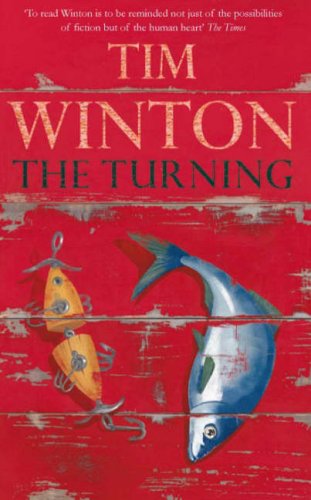 His parents, ‘always struggling to get me inside something’, can’t control him, like they can’t cultivate European style lawns.
His parents, ‘always struggling to get me inside something’, can’t control him, like they can’t cultivate European style lawns.
The young narrator continuously dials 1194 in the phone box, to hear a plummy BBC voice tell the time: ‘I did that for years, alone and in company, listening to the authority in that man’s voice’.
A swamp at the edge of the housing lures the children. The narrator resists at first, but eventually, ‘I surrendered to the swamp. Every wrinkle, every hollow in the landscape led to the hissing maze down there’. And down there are dried lupins, seed pods, a black swan, scaly paper barks, reeds. He finds eggs in the reeds, skinks in a fallen log, a bluetongue lizard: ‘By this time I was beginning to have second thoughts about the 1194 man […] Time wasn’t straight and neither was the man with the BBC voice.’
At school he learns about ‘the wide brown land, the dry country’. A neighbour talks about the water table: ‘Looks dry this country, but underground there’s water. Caves of it.’
Cars get dumped in the swamp. Children hack off tops, to make canoes. One Saturday at the swamp, Alan Mannering, a bully ‘Pom’, already in a canoe, pokes a jarrah stake in the narrator’s chest, and is sucked into the swamp. The narrator says nothing.
At Christmas he is with his family at a South Australia blowhole:
Its rising gorge made me queasy. I thought of things sucked in, of all that surging, sucking water beneath the crust of the wide brown land […] I thought of Alan Mannering raining silently down up on the lawns of our street. I thought of him in lettuce, and tomatoes, in our roses. Like blood and bone, in mosquito larvae, in frog’s blood.
Later, as water restrictions start, and drills extract water from water bores, he realises, ‘My neighbour had gotten into everything; he was artesian’.
At twelve, he thinks of others who might have drowned in the swamp:
…the more I let myself think about it the less new everything seemed… a 100 years, then a thousand, and a million […] Birds, fish, animals drowned in a swamp […] the brown land, I figured, wasn’t just wide, but deep too.
As an adult hovering round his old streets, he sees an aboriginal family evicted and comes to a realisation:
I was right to doubt the 1194 man […] Time doesn’t click on and on at the stroke. It comes and goes in waves and folds like water; it flutters and sifts like dust, rises, billows, falls back on itself… the past is in us… things are never over.
In a world where high streets morph into each other, Winton reminds us how small towns close in, the coast frees us, and ancient landscapes transmit a sense of mystery.
In an interview with US magazine Breakpoint, he commented that he has a visceral response of to ‘the stream of Christian thinking (which is an old one) that reveres the natural world, that sees the created world as the prime means by which humans and animals experience the divine.’ He goes on to explain that the natural world feeds both his faith and his fiction:
I guess in my work there is this constant encounter with the landscape which contains past, present and future all at once, something I’ve learned more about through process thought and quantum theory, and Aboriginal culture.
Winton says, ‘I like to think that if you are true to the particular, the universal will look after itself… I’m interested in people who want to understand the meaning in their lives’. Like O’Connor, he is able to write without dogma from a perspective of faith, showing us flawed human beings encountering mystery.
~
photo of Tim Winton © Denise Fitch
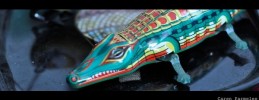
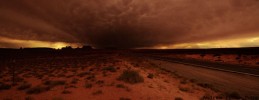
One thought on “The Turning”
Comments are closed.